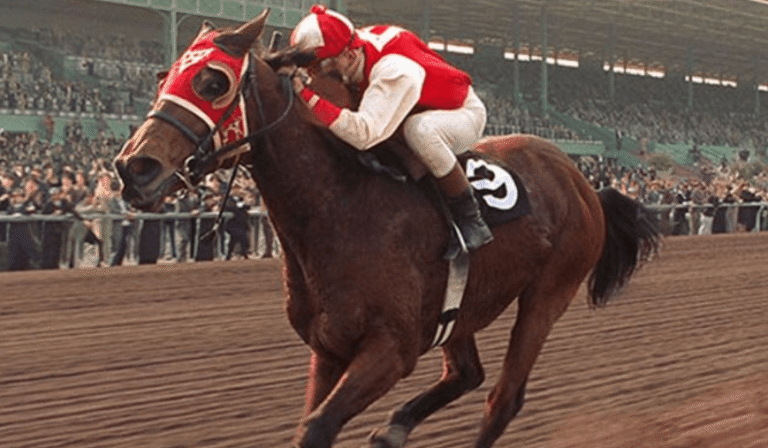Horse racing is more than just a sport; it has captivated audiences for centuries and has found a prominent place in popular culture. From thrilling races to compelling stories of triumph and underdogs, horse racing has inspired movies, television shows, documentaries, and even fashion trends, leaving a lasting mark on society.
This article explores how horse racing has influenced popular culture and why it continues to captivate the imagination of filmmakers and audiences alike.
1. Horse Racing in Film
Movies have long depicted horse racing as a backdrop for drama, excitement, and human-animal connections:
- “Seabiscuit” (2003): Based on the true story of an underdog racehorse who inspired a nation during the Great Depression. It highlights the bond between horse, jockey, and trainer.
- “Secretariat” (2010): Chronicles the legendary Triple Crown winner and emphasizes both the athleticism of horses and the dedication of their human teams.
- “National Velvet” (1944): A classic tale of a young girl training and riding her horse to compete in the Grand National, inspiring generations of fans.
These films showcase horse racing as a symbol of perseverance, competition, and emotional storytelling.
2. Horse Racing on Television
Television has brought horse racing into homes around the world, combining live sports coverage with storytelling:
- Live Broadcasts: Races like the Kentucky Derby, Preakness Stakes, and Royal Ascot are televised globally, turning the sport into a shared cultural event.
- Documentaries: Series like “Racing to the Triple Crown” and “Inside Churchill Downs” provide behind-the-scenes access to horses, jockeys, and trainers.
- Drama Series: Shows sometimes use horse racing as a plot device to explore themes of ambition, rivalry, and personal growth.
Television has helped make horse racing accessible and exciting for a broader audience.
See also: Horse Racing Innovations: The Technology Behind the Sport
3. Horse Racing as a Cultural Symbol
Beyond the racetrack, horse racing has influenced fashion, social events, and lifestyle:
- Fashion Traditions: Events like the Kentucky Derby are known for extravagant hats and elegant attire, blending sport with style.
- Social Gatherings: Race days have become cultural occasions, attracting celebrities, dignitaries, and enthusiasts.
- Media Coverage: Newspapers, magazines, and online platforms celebrate both races and equestrian culture.
Horse racing thus serves as a cultural touchstone, reflecting society’s love for competition, elegance, and spectacle.
4. Inspiring Storytelling
Horse racing stories resonate because they combine human emotion, animal talent, and high stakes:
- Underdog Triumphs: Stories of overlooked horses achieving greatness inspire audiences universally.
- Human-Horse Bonds: Films and shows often emphasize the trust, respect, and teamwork required between jockey and horse.
- Historical Narratives: Real-life racing legends like Man o’ War, Secretariat, and Zenyatta have become mythical figures in popular culture.
These narratives make horse racing relatable and emotionally compelling for audiences of all ages.
5. Global Influence
Horse racing has influenced entertainment around the world:
- United Kingdom: The Grand National and Royal Ascot feature in films and TV dramas highlighting British traditions.
- Australia: The Melbourne Cup is celebrated in media and documentaries, emphasizing cultural significance.
- Japan: Races like the Japan Cup inspire anime, documentaries, and sports programming, blending culture with equestrian excellence.
This global presence demonstrates that horse racing is both a sport and a cultural phenomenon.
6. The Future of Horse Racing in Popular Culture
With modern streaming platforms, social media, and immersive technology, horse racing continues to reach new audiences worldwide:
- Virtual Reality (VR) Experiences: Allow fans to feel like they are riding alongside jockeys.
- Documentaries and Series: Focus on horse welfare, training, and racing legends, creating educational and emotional content.
- Pop Culture Collaborations: Partnerships with fashion, gaming, and lifestyle brands increase visibility beyond traditional sports fans.
The sport’s presence in popular culture is evolving, but its core appeal of speed, drama, and human-animal connection remains timeless.
Conclusion
Horse racing has carved a significant role in popular culture through films, television, social events, and global media. Its stories of triumph, skill, and perseverance continue to inspire audiences, while its traditions influence fashion, lifestyle, and entertainment.
Ultimately, horse racing in popular culture reminds us that the sport is not just about competition—it is about narratives, emotions, and the enduring bond between humans and horses, ensuring its place in hearts and screens around the world.
